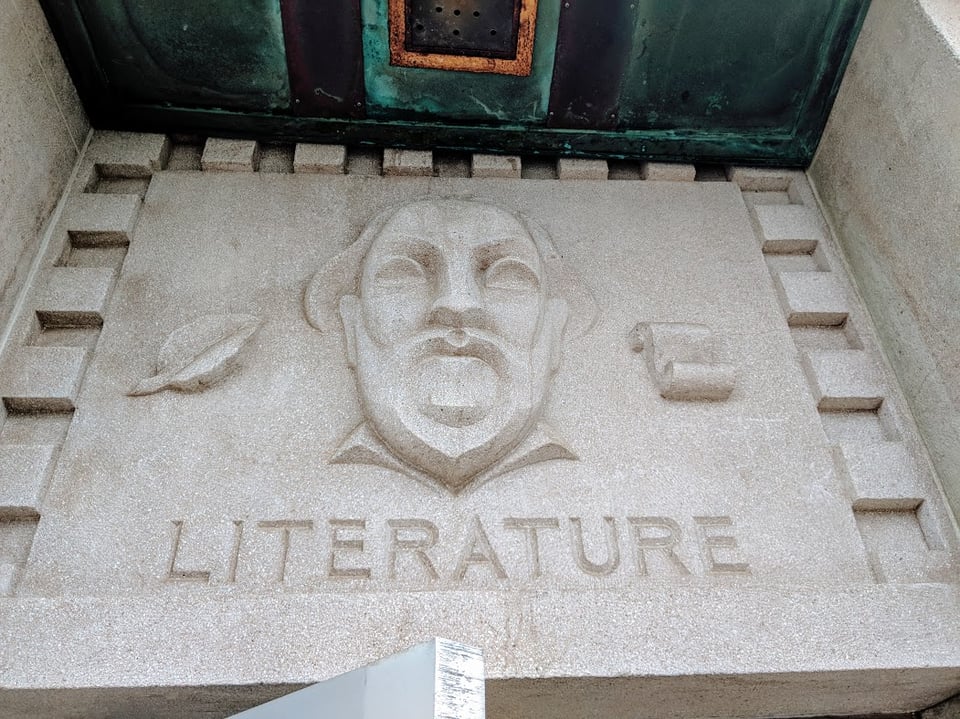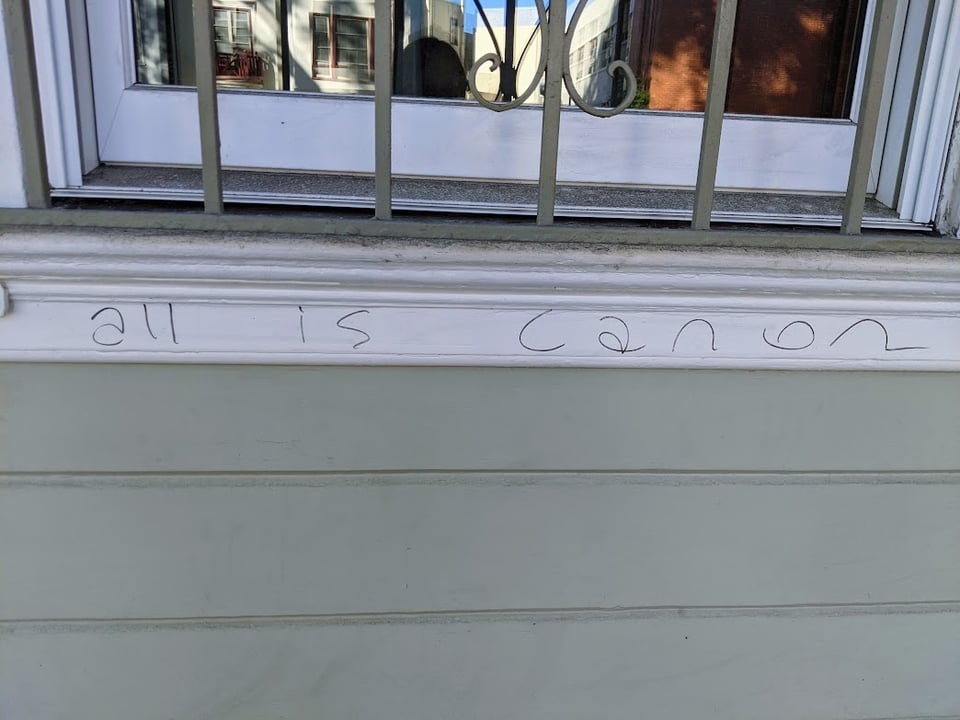Does An Unreliable Narrator Need To Be an Asshole?
Narrators! You can't rely on them these days. They always let you down, even the ones who have five stars on Yelp. One time, I hired a narrator to move a sofa and they claimed they brought it to my house, but it was actually five blocks away. Freaking narrators.
You've probably heard, or even used, the phrase "unreliable narrator." But what is an unreliable narrator, and why do we keep them around even though they let us down constantly?
I often hear two slightly contradictory things about the concept of the unreliable narrator:
All narrators are unreliable, because nobody can ever really know the actual truth
A properly unreliable narrator is a feat of great artistry and literary cleverness, spinning a tale that semi-intentionally deceives you as to the validity of its events.
I say these things are slightly contradictory, because if all narrators are unreliable, why is it such a huge literary achievement to create an unreliable narrator?
But I think it's probably a difference of degree. Sure, all narrators might be unreliable, but to make a seriously useless narrator requires a certain amount of skill. It's a question of how far you take it, and how well you take it there, I guess.
I’ve never set out on purpose to write an unreliable narrator. It's usually during the writing process that I start to realize that a POV character is incapable of registering certain things that are happening around them. This comes out of being immersed in someone’s viewpoint and soaking in all their biases. I find this more satisfying as an author than making a grandiose decision that I'm going to mess with your head to show how clever I am.
People sometimes define the term “unreliable narrator” a bit too narrowly for my liking, as if it’s always just a matter of a misrepresenting the facts. In other words, the narrator tells you something happened, but it didn't happen, or maybe it happened in a very different way. This is certainly one thing an unreliable narrator can do. But I often find it more satisfying when a narrator is relating the events more or less as they happened, but they’re leaving out a lot of context, or interpreting those events in a way that is way off base.

With a few notable exceptions, I get a bit annoyed when a book tries too hard to make me question whether the events in the book really happened. Sure, this can be done well, and I do appreciate when it is. But if I spend a lot of time reading about a series of incidents, only to realize that none of it was real, I start to feel as though the book has wasted my time. Obviously, your mileage can and will vary. (That goes for everything I’m saying here, natch.)
So how do I write my unintentionally unreliable narrators? I am so glad you asked. (I am pretending you asked, because I am an unreliable essayist.)
You might think the most important thing is to understand the person who is narrating the story, whether in first person or close third person. And seeing how this person’s mind works and how they fail to understand key aspects of their own life. And sure, this is super important, and it’s a pre-requisite of writing a good narrative POV to begin with. If you’re telling a story from a particular person’s perspective, you should absolutely know their preconceptions, including the stuff they tend to overlook.
But I’d say that’s not actually the most vital part of creating an untrustworthy narrator. Rather, the most important step is to get fully into the heads of the characters who aren't narrating. Think about it: how do you know what your POV character is failing to see, unless you know what these other characters are aware of and how they see the situation? And why this is important to those other characters? (I’m assuming you’re not doing an omniscient POV, because that’s sadly rare these days — and if the POV isn’t omniscient, then the only other way of looking at the events of your story must come from one of the other characters. There’s no objective truth, just competing perspectives.)
One common technique for insinuating that your narrator is missing something is to sneakily insert information in a way that makes it clear the narrator isn’t noticing it. A lot of tight-third-person narrators do this to great effect: You'll get pieces of information through the POV character’s perspective, and yet this protagonist will miss it entirely. No shade to that technique — I love it. But this isn’t my favorite way of insinuating that a narrator is a bit out to lunch. Not by a long chalk.
I vastly prefer when one of the other characters in a story says something (or does something) that indicates that they have been viewing the events of the story in a radically different way, and it takes the protagonist or POV character by surprise. I like this better because it gives the other characters more of a life of their own, and because the protagonist themself is forced to grapple with the fact that they’ve been reading things wrong. (Or at least, not reading them the same as their friends.)
I also really like to spend a lot of time layering in a character's internal monologue, to the point of being a bit ranty. That way, we know what the narrator cares about, and the lens through which they are likely to view a lot of events. We may even see them reassuring themselves of certain beliefs about the situation, which they believe intensely but deep down they know maybe those facts aren't facts.

In The City in the Middle of the Night, I spent a lot of time investing in Sophie's admiration for Bianca — whom Sophie idolizes even after Bianca throws her under the bus. This wasn't just a matter of Sophie's internal monologue praising Bianca, though there is a decent amount of that. I also try to portray Bianca in the most flattering light possible through Sophie's POV, giving her all the best lines of dialogue and showing her being brilliant and heroic — even as her actual actions are extremely selfish and she is low-key using Sophie from the beginning.
In my upcoming novel Lessons in Magic and Disaster, I doubled down on creating a very ranty narrative POV. My first draft was written in the first person, and then I revised it into third person because I felt like it worked better tonally that way. (And the ranting was getting a bit much.)
In the final version of Lessons in Magic and Disaster, you still get a very strong sense of Jamie’s internal monologue and especially her obsessions. For example, Jamie has strong opinions about magic, and how best to teach her mother to be a witch. Minor spoiler: Jamie also has some clever rationalizations as to why it's better to hide the fact that she's a witch from her partner, Ro. Minor spoiler: we eventually come to see that Jamie is wrong about a lot of stuff, but not because she’s evil or even selfish.
I also found myself organically including moments where people call Jamie on her shit, and she is caught off guard. In one important scene, someone asks Jamie why she's smiling, and she did not realize she was smiling until they told her. I also love some of the moments where people summarize Jamie's own behavior back to her, and the events are accurate to what we've previously been told, but none of it is the way she thought it was.
Important point: a narrator who has a strong perspective on events, and maybe doesn’t understand how other people see what’s going on, does not need to be selfish. Or self-righteous.
I've written a lot of fiction where my main character is depressed, or struggling with something heavy. In my experience, a depressed person is by definition a very unreliable narrator, because that’s the nature of depression. By the same token, someone who has been through a lot of trauma is not going to be able to come to terms with some aspects of their situation with perfect clarity. Insecurity also clouds your mind. People often have a hard time seeing the people they're closest to in an objective way as well.

All of which is to say, an unreliable narrator is not necessarily an asswipe. Yes, there are storytellers who set out to spin a yarn and intentionally deceive you about things that happened for their own self-serving reasons. And I love those kinds of narrators. Give me a rogueish raconteur any day. Still, the vast majority of unreliable narrators are simply lying to themselves, or trying their best to get to the truth but distracted by their own issues.
Which brings me back to the nostrum that all narrators are unreliable. Which is true, as far as it goes — because all experience is subjective, and we are all flawed vessels. What I like about this statement is that it can help you to make a narrator gently unreliable, rather than jarringly unreliable. I stan a character who really desperately wants to be truthful, but is unable to manage it. I appreciate someone who is wrestling with their own inability to handle the truth (Jack Nicholson voice not required.)
For me, I guess the ultimate reason why I care about the concept of an unreliable narrator is because it shines a light on our limitations as real human beings — not because it allows me to get into the mind of a sociopath. But as always, there are no rules except that when you can have fun, you should have fun. So have fun!
Just don’t hire a narrator to drive you to the airport.
Music I Love Right Now
Lately, I’ve been listening to (not watching) this Pointer Sisters concert from 1981. I listen to it as I write. Check it out:
It’s so freaking good.
In 1981, the Pointer Sisters were one year away from a string of monster hits, starting with “I’m So Excited” in 1982. But they’d already had an incredible career up to this point, scoring some pretty big hits but also staking out some new territory. Their 1970s albums run the gamut from jazz to showtunes to country music to rock’n’roll to funk, often in the same album. (Check out their early 1970s earworm of a number song from Sesame Street.) They scored a huge country music hit with “Fairytale” in 1974, and became the first Black group to play the Grand Ole Opry that same year. They tell the story of visiting the heart of Country music in the video linked above (at around 39:26).
Anyway, this is an incredible concert that’s given me a whole new appreciation for a group I already loved. Their versatility shines through. I especially love the medley of two of their early hits, “Yes We Can Can” and “How Long (Betcha Got a Chick on the Side”, which slithers and shuffles and uses the scratchy guitar to great effect. I’m obsessed with all the wacky key changes during the guitar solo at the end of “Could I Be Dreaming.” I already thought the Pointer Sisters were one of the all-time great vocal groups, but now I’m even more obsessed.